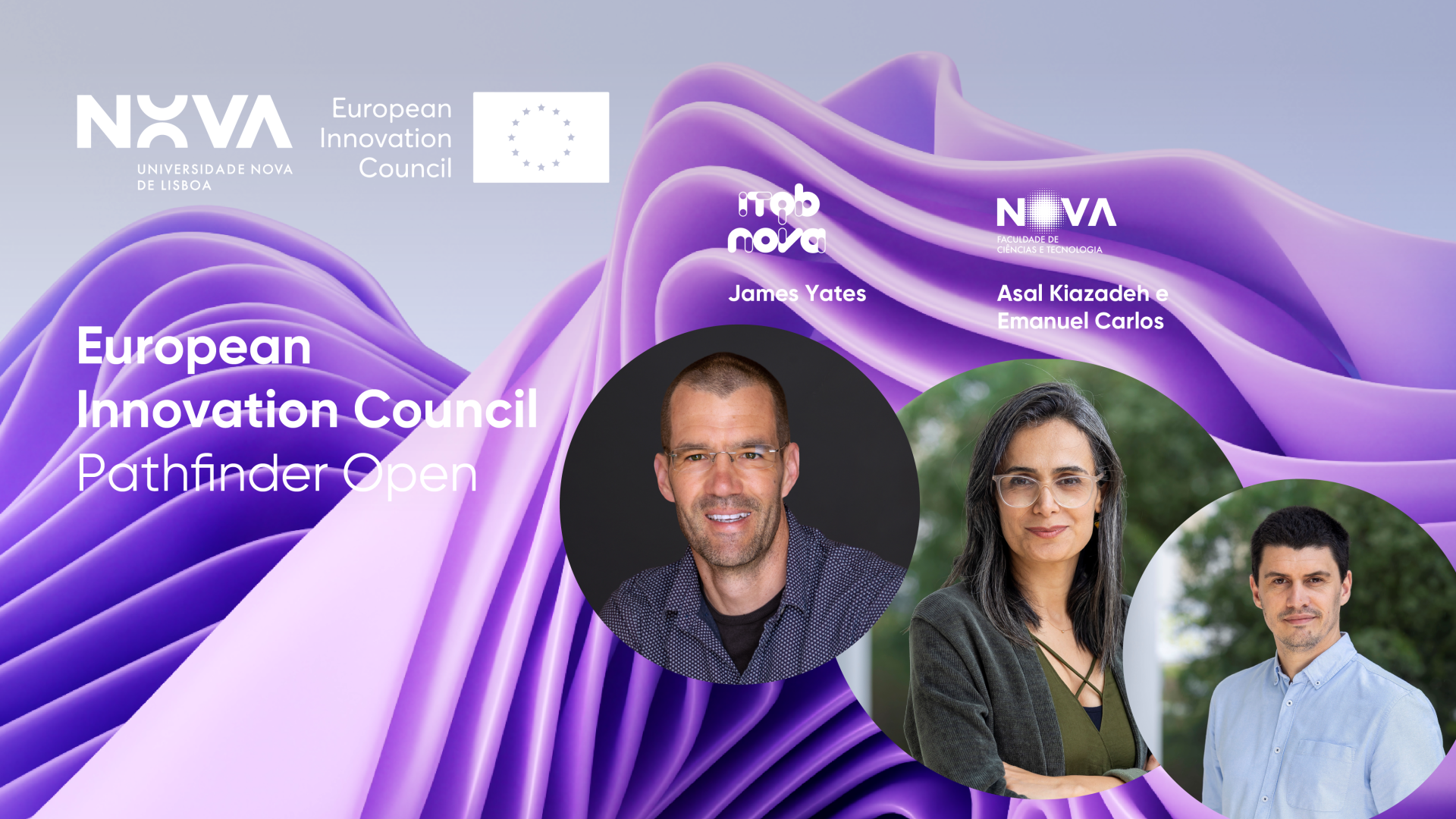NOVA University Lisbon once again stands out in research excellence, with two projects funded under the EIC Pathfinder Open 2025 programme, one of the European Commission’s most important initiatives to support visionary science and disruptive innovation.
Out of more than 2,000 applications submitted, only 44 projects were selected across Europe, two of which involve NOVA: one from ITQB NOVA and another from NOVA FCT.
Asal Kiazadeh and Emanuel Carlos, researchers at NOVA FCT – CENIMAT|i3N, are part of the GAIA project, which proposes a new generation of Internet of Things (IoT) based on biodegradable electronics and ambient communication. GAIA aims to develop a new class of transient microelectronic systems, characterised by low energy consumption and simple integration into existing IoT infrastructures. The team intends to develop sustainable, battery-free devices with zero environmental impact, responding to one of today’s biggest concerns: sustainability in the technology sector. NOVA FCT coordinates the work package dedicated to energy, detection and communication principles, focusing on the development of low-power, high-energy-efficiency electronic components manufactured on biodegradable substrates, with funding of €522,000.
James Yates, a researcher at ITQB NOVA, is part of the RamanProSeq project. The consortium will develop technology capable of reading and sequencing individual proteins with an accuracy of over 99.9%, even in very small quantities. This approach could, in the future, enable the detection of changes in proteins associated with diseases, opening up new possibilities for biomedical diagnosis and transforming personalised medicine. The funding for ITQB NOVA is €261,000.
EIC Pathfinder, part of the European Innovation Council, funds scientific research projects that explore pioneering ideas with the potential to transform European science and the economy. In the 2025 edition, the programme awarded €140 million to projects across Europe, with €4.2 million going to Portuguese institutions, representing a national success rate of 2.22%, higher than the global average.
‘These results confirm NOVA’s high level of competitiveness and scientific excellence, distinguished by its ability to develop creative and visionary research. These scientific foundations for revolutionary technologies will contribute to creating solutions with a global impact on society,’ says Cecília Roque, NOVA’s Vice-Rector for Research and Advanced Training.
With these two grants, NOVA strengthens its presence in the European research and innovation space, consolidating its leading role in cutting-edge science and international collaboration.

